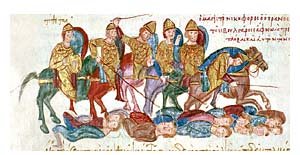The Iolaire Disaster

During the dark small hours of New Year’s morning, 1919, the Admiralty yacht, HMY Iolaire, with nearly 300 men aboard, foundered on the ominously named rocks, The Beasts of Holm, just yards from shore and within a mile of the safety of Stornoway Harbour on Lewis in the Western Isles.
The men aboard were returning from the horrors of the Western Front at the conclusion of the Great War. Although within site of their homeland, almost within touching distance, rough seas prevented them from swimming ashore. Many who attempted were drowned, one man, John MacLeod bravely succeeded in getting ashore with a line, from which a further 30-40 men were able to drag themselves to safety. The last survivor was not found until daylight - one man, Donald Morrison, was found still hanging on to the rigging for dear life. Seven others had been with him, but had not been able to hang on throughout the night.
205 men were drowned that day. For such a close knit and remote island community, the tragedy must have come as unbearable blow. The loss cannot be imagined, not a family was unaffected.
(Iolaire survivors Donald Morrison and John Macleod)
The loss of over 200 men, together with the 1000 who had died in the trenches, effectively deprived Lewis of a generation of men. Emigration to America and the mainland UK escalated. Today the population of Lewis is half of what it was the night the Iolaire went down.
Your scribe signs of for the evening, disturbed at this savage twist of fate - To get so close to home, after been so far away for so long, only to drown within site of land. If there is a God, he works in cruel and mysterious ways.






